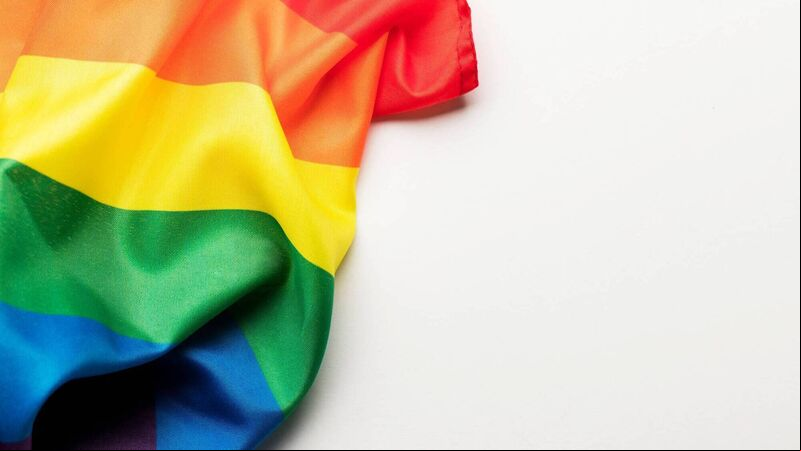Some are still more equal than others

700 of the Irish public were surveyed recently about their attitudes towards different groups of people within the LGBT+ community, and to explore beliefs about gender and sexuality.


700 of the Irish public were surveyed recently about their attitudes towards different groups of people within the LGBT+ community, and to explore beliefs about gender and sexuality.
THE Alphabet Mafia, The Queer Community – LGBTQI+ is the ever-growing acronym to describe the experiences of all of us non-straight, non-gender conforming folk.
We talk about this community as one big, homogenous rainbow family, but in reality, how similar is the lived experience of cis (a person whose gender identity and sex assigned at birth is the same) lesbian and cis gay men to that of our trans, bi and non-binary siblings?
That is something the recently published NXF report (National LGBT Federation) sought to answer, among other areas of interest when it comes to public opinion on the LGBTI+ community.
Some 700 of the Irish public were surveyed with a view to assessing attitudes towards different groups of people within the LGBT+ community, and to explore beliefs about gender and sexuality. The outcome? We are all equal, but some are more equal than others!

The report shows that, on the whole, there seems to be a broad acceptance of diversity in relation to gender and sexuality, but some problem areas still exist in the arena of public opinion: 49% of respondents agreed that “it is impossible to truly change one’s sexual orientation”. That leaves a portion of the public believing LGBTI+ people can change their sexual orientation. A prudent moment of reflection here would be to ask yourself, could you (genuinely) change your sexual orientation?
The report, published this month, used a ‘feeling thermometer’ which asked respondents to gauge their feelings between 0 and 100 in relation to different of the LGBTI+ community. The most favourable identities in of public opinion are gay men and lesbian women respectively, with the scale of public opinion decreasing in the order of trans men, trans women, intersex people and non-binary people last.
By way of comparison, respondents scored heterosexual men at 98, heterosexual women at 91 and non-binary people received a median score of 65.
Considering that 1993 saw the decriminalisation of homosexuality and 13 years later we leaped to marriage equality, it’s fair to say that Irish attitudes on LGBTI+ people have made an impressive U-turn in recent years and the selection of incredible services and organisations in the country is testament to that.
At LINC, we work at both a local and a national level and our services range from individual and group engagement to institutional and governmental; our soccer club, drama group and book club as well as our silver scribblers pen pal service for older LB women engage on the interpersonal level with an aim to ease feelings of loneliness, isolation and exclusion often common to the LGBTI+ experience.
Our WorkLINC project helps to bridge the gap in employment and education experienced by LGBTI+ women and our work on cervical screening, sexual health and involvement in the working group on hate crime legisla aim to have national and far-reaching consequences. While work like this is happening at different levels all around Ireland, there are still notable disparities between identities under the LGBTI+ umbrella.
Ensuring bisexual, trans, intersex and non-binary individuals are treated with respect and acceptance is the work of the entire community and our straight allies and merely landing in a place of tolerance is no longer an acceptable goal for the LGBTI+ community; begging for scraps in relation to public participation and experiencing life as partial citizen is no longer good enough. These findings highlight that there is still a way to go.
There is an extra labour to walking in the world as ‘other’ and for many, the degree of this labour is incredibly taxing on mental health and social and emotional wellbeing. Gender non-conforming people and misunderstood sexual minorities carry a weight with them when navigating public life and until the burden of that weight is shouldered, shared or relieved we cannot possibly hope for or claim to be an equitable and fair society.
ABOUT THE AUTHOR
Ciara Mulcahy – Community Health Worker, LINC
ABOUT LINC
LINC is an NGO that s and advocates for lesbian and bisexual women and their families.
Their central aim is to improve the quality of life, health and well-being of all women who identify as lesbian or bisexual in Ireland.
Sign up to receive our weekly newsletter to be in with a chance to win prizes and see what's coming up in The Echo
3 minutes ago
Film Review: Mountainhead is smart and funny, but tiresome2 minutes ago
Man who went drinking in car park of Cork's main Garda station and made threat avoids jail after turning life around2 hours ago
Lighthearted penalty prep work pays off for Patrick Collinsan hour ago
Cork local authorities get €2.2m in funds to improve quality of housing stockHave you ed your FREE  App?
App?

It's all about Cork!
Sign up to receive our weekly newsletter to be in with a chance to win prizes and see what's coming up in The Echo
Add Echolive.ie to your home screen - easy access to Cork news, views, sport and more